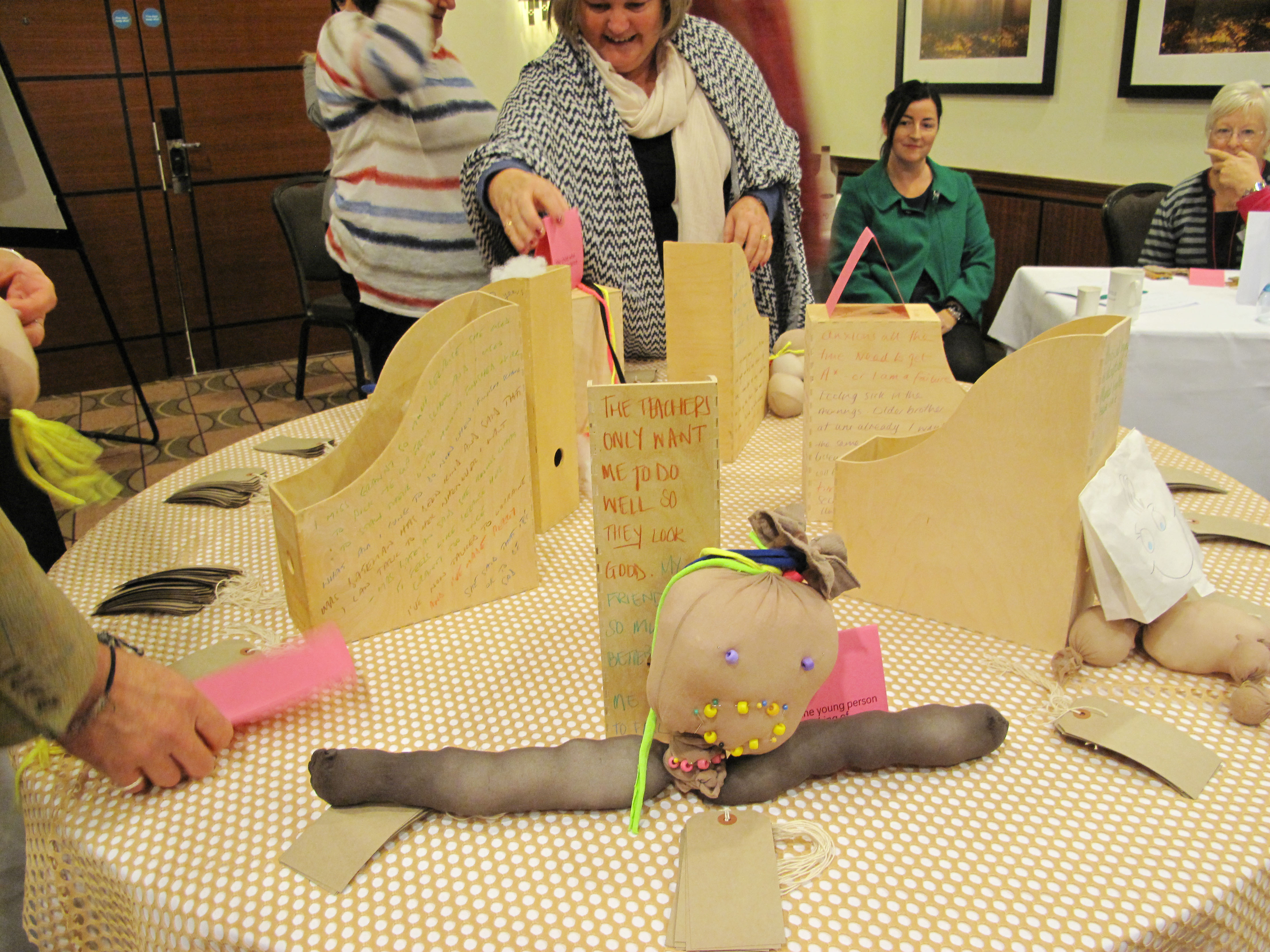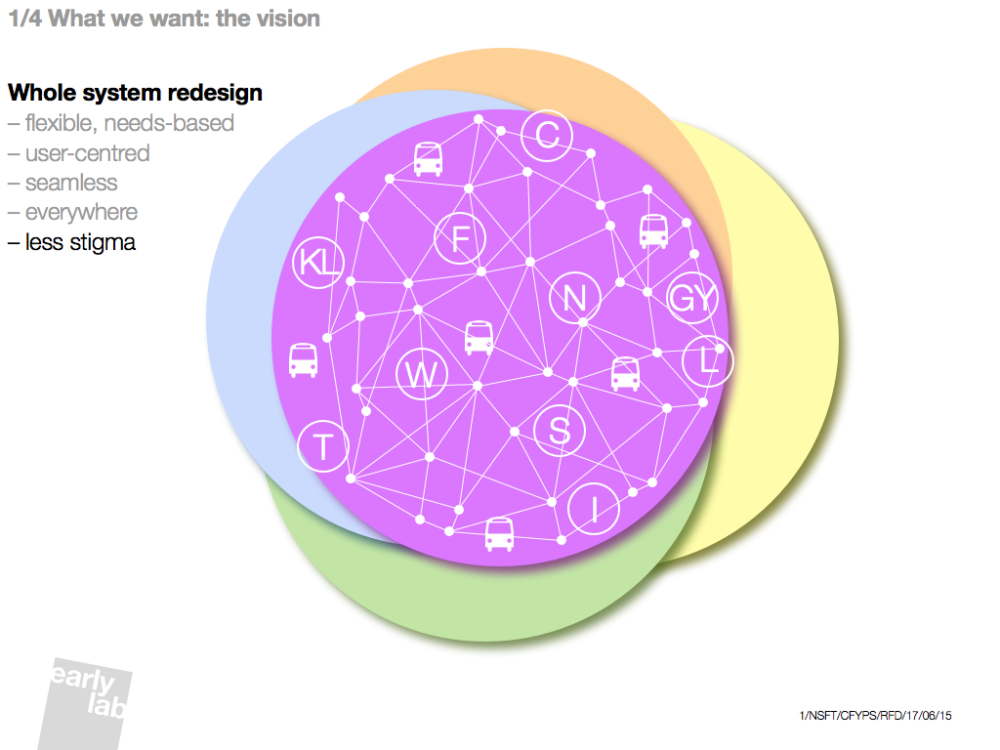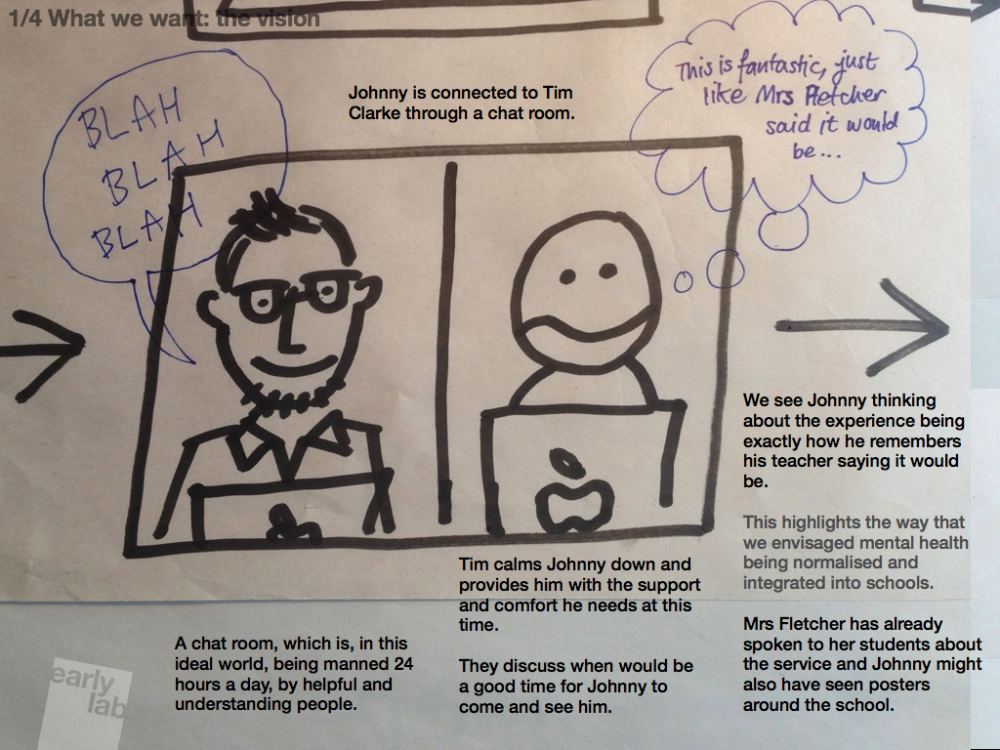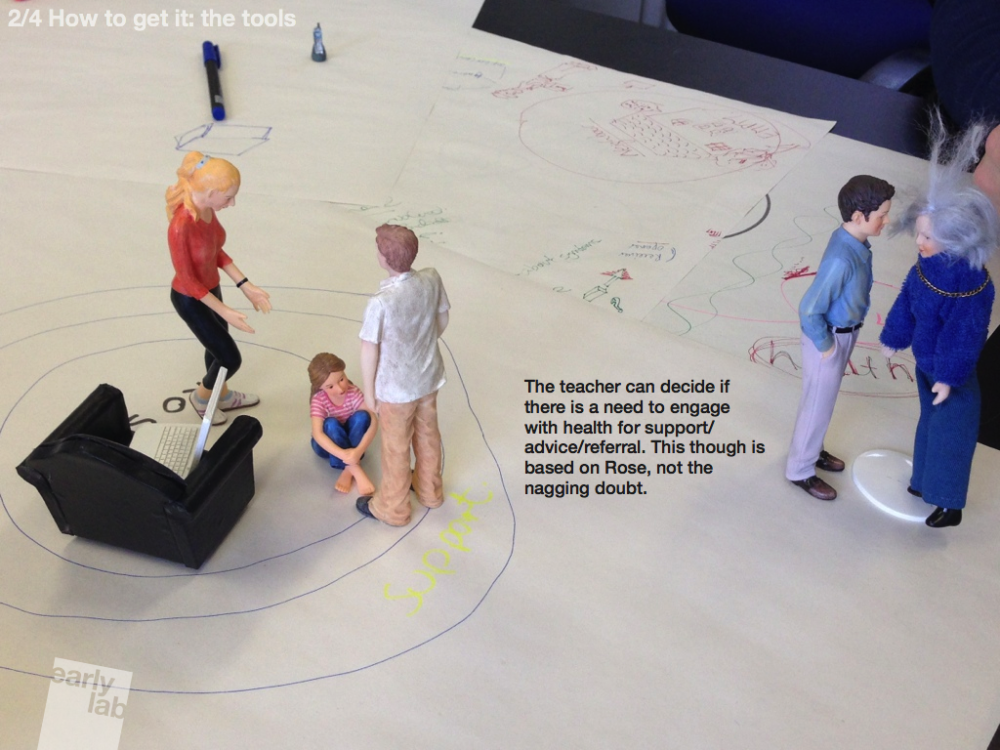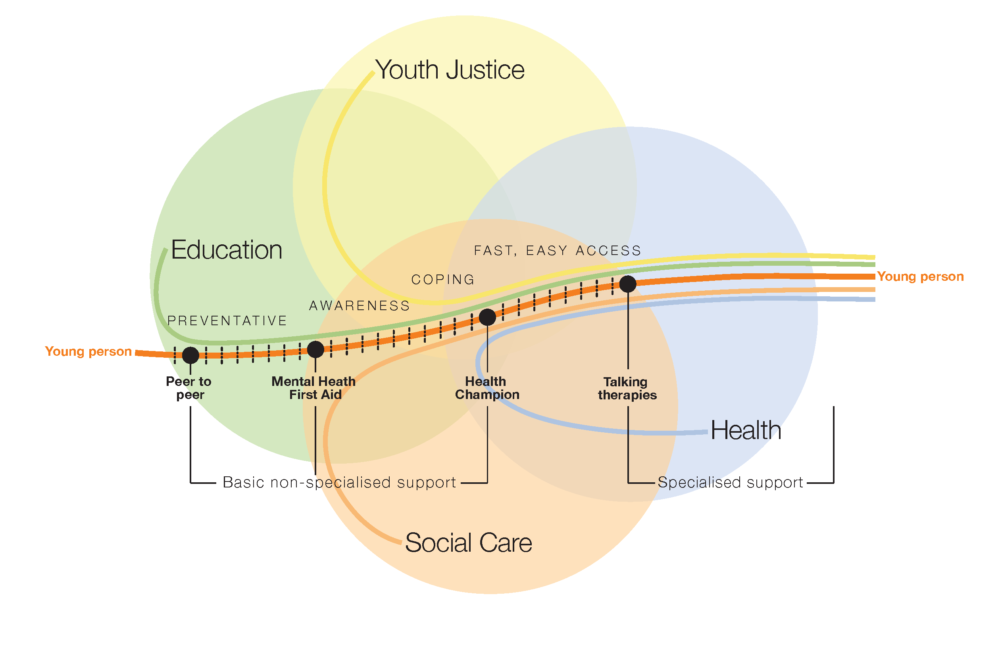Early Lab case study 1: service envisioning with a regional NHS mental health service
Service envisioning with NSFT's (Norfolk & Suffolk NHS Foundation Trust) mental health service for children and young people. On-the-ground workshops with service users and service providers followed by configuration of the workshop outputs into a research findings document presented to senior NHS health commissioners in Norwich.
A case study of the service envisioning project with NSFT that ran in 2015.
1/23
Early Lab has been working with NSFT (Norfolk & Suffolk NHS Foundation Trust) for the last two years: initially to review their youth mental health service and with young service users and frontline clinicians, envision a much better one. That was in 2015. In 2016, we began working with them on a project in schools.
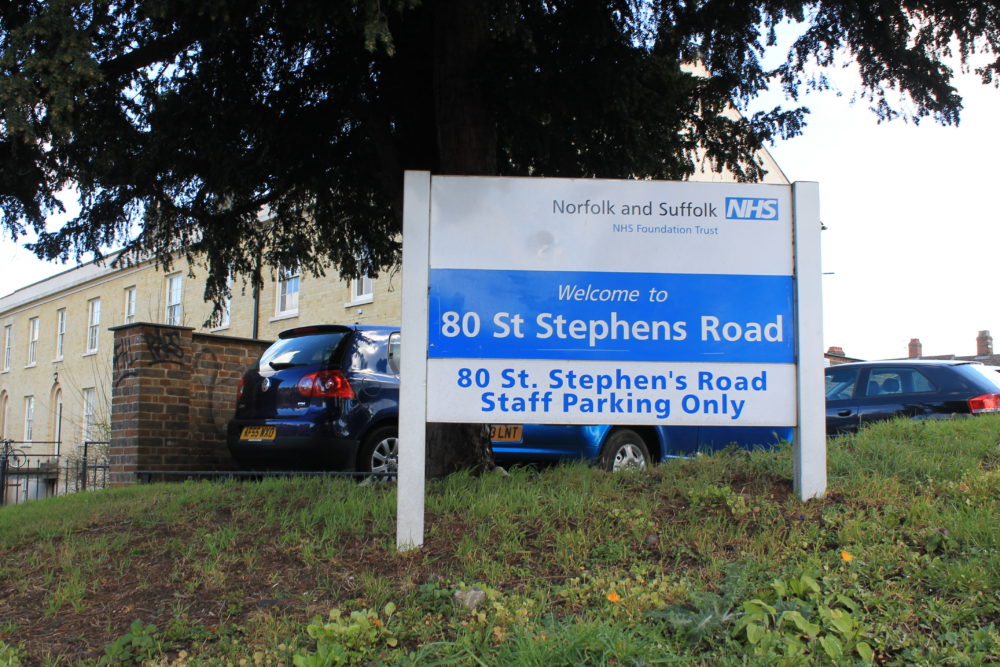
2/23
The prompt for the collaboration in 2015 was this document, below. My contact at NSFT, a psychiatrist and service leader, was a member of the UK coalition government’s national youth mental health Taskforce that published this report. NSFT wanted help with their service Transformation Plan that would present a strategy for the complete transformation of their youth mental health service.
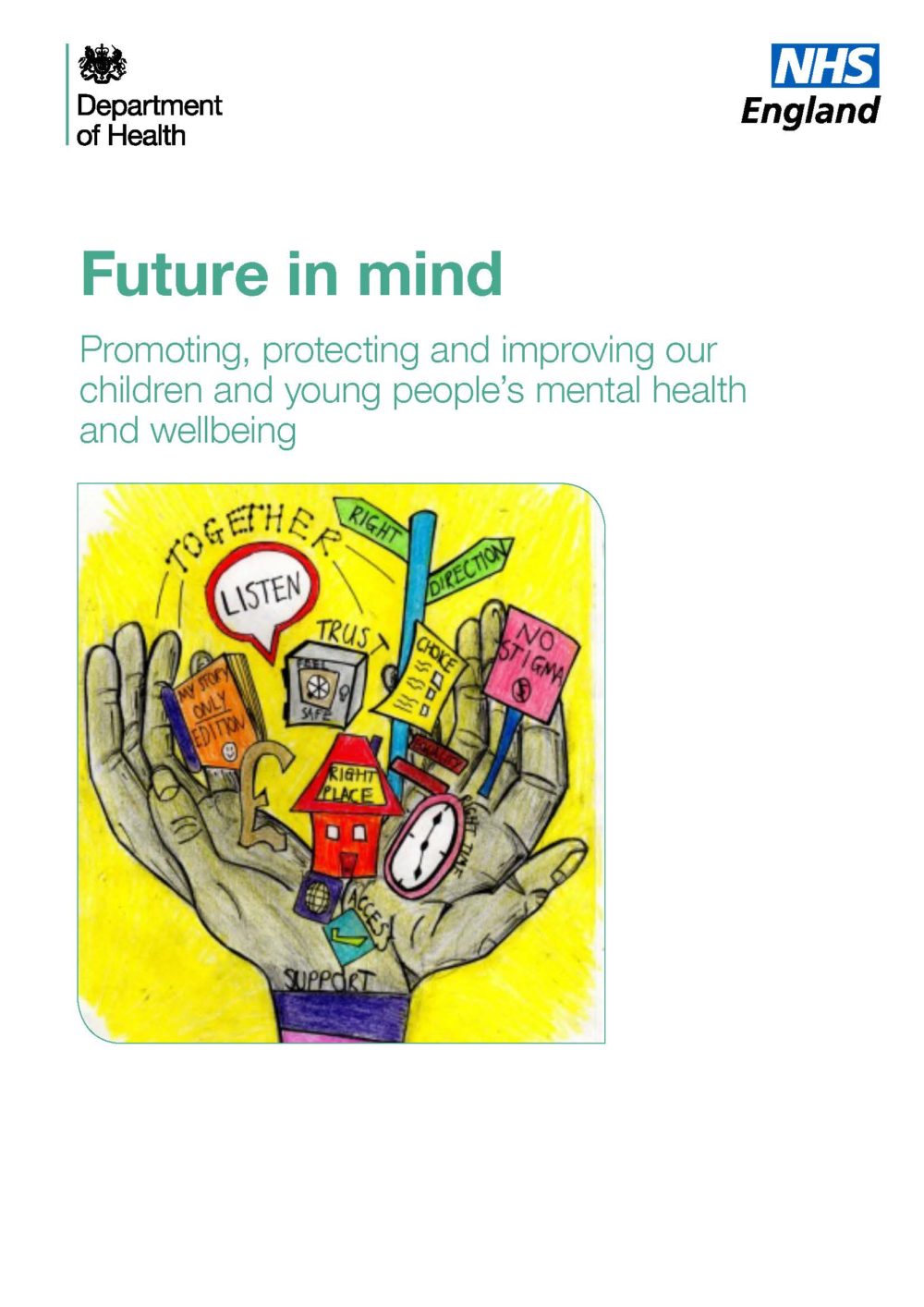
3/23: the field trip
In March 2015, Early Lab took a team of 8 UAL design students on a week-long field trip to Norfolk. Overseen by myself and fellow Early Lab co-founder Fabiane Lee-Perrella, they would run a series of workshops with young service users and frontline clinicians. We used the facilities of a secondary school in this tranquil spot in Norwich, right next to the cathedral.
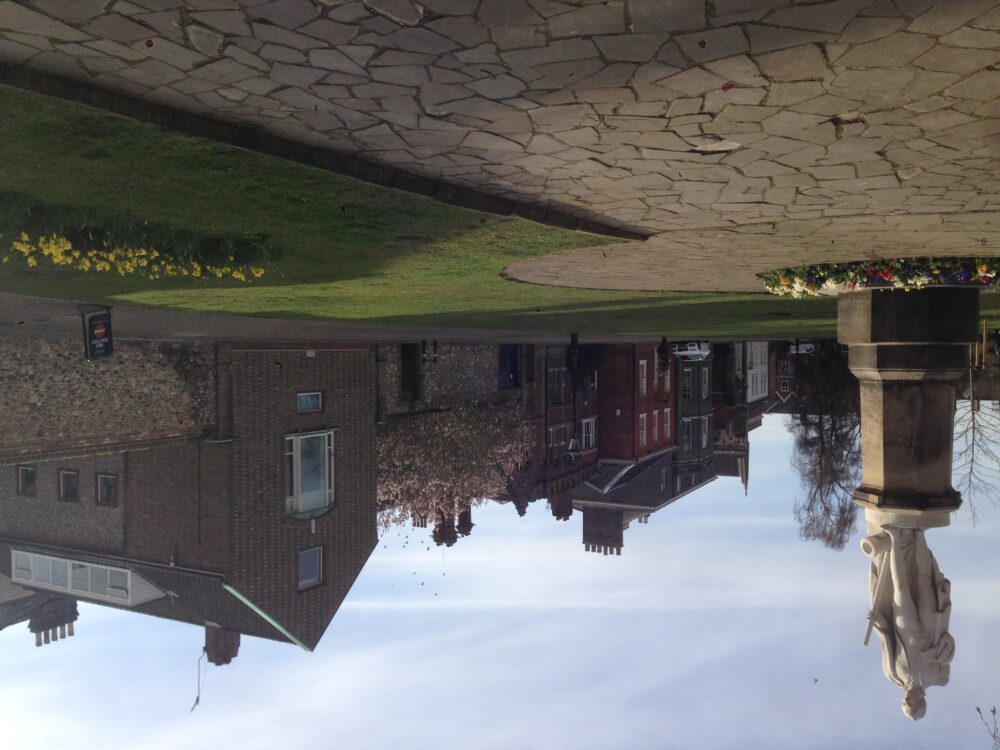
4/23: field trip day 1
We ran a series of 6 workshops: 4 with service users and 2 with service providers. On the morning of day 1, we asked the service users to tell us about their experience of accessing youth mental health services. Our students sat, listened, and took notes. It was a difficult beginning and a mistake that we have learned from (as I will explain later).
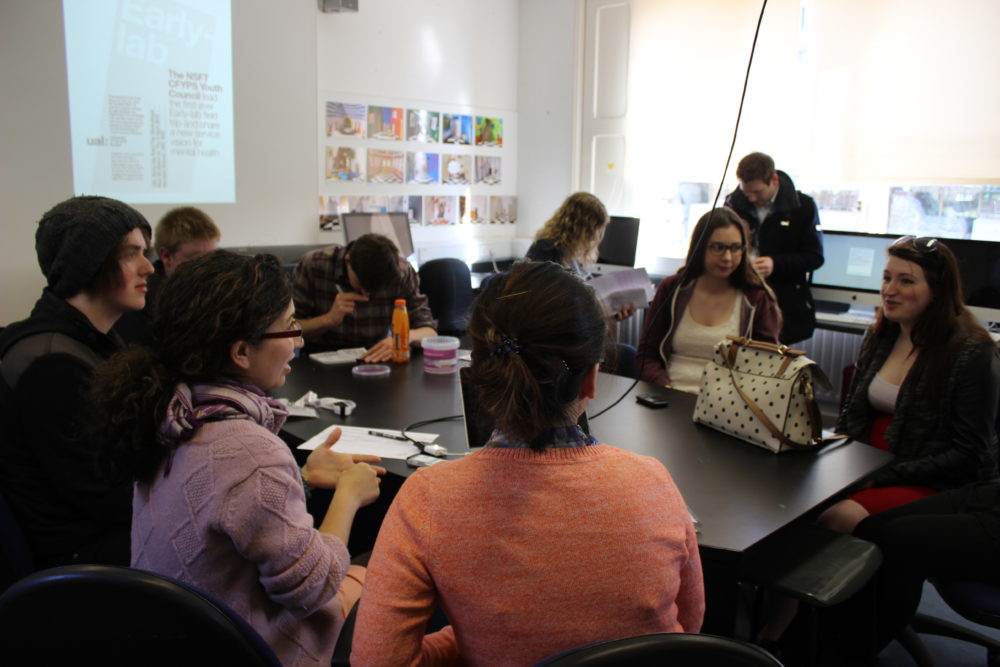
5/23
On the afternoon of day 1, we asked service users to map their personal networks of support. Students helped them visualise this using crochet yarn woven into stretched canvas. All participants found the experience very positive. The mood had changed quite dramatically for the better (compared to the morning session).
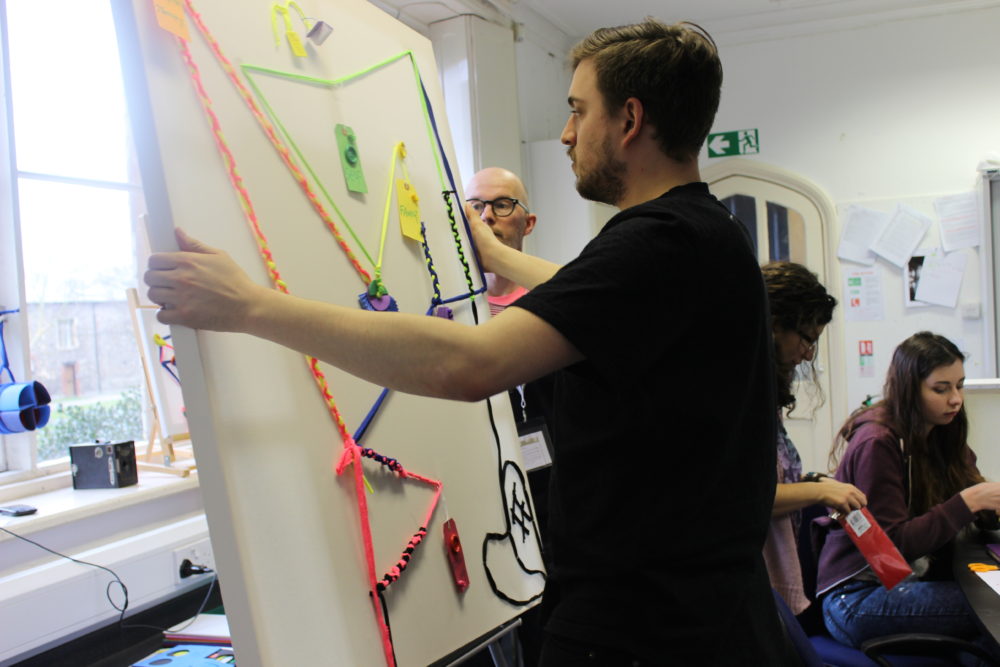
6/23: field trip day 2
On the morning of day 2, we asked the service users to take us on a tour of Norwich – their territory – putting them in control. They looked at the city for its potential to provide alternative sites of access to mental health services.
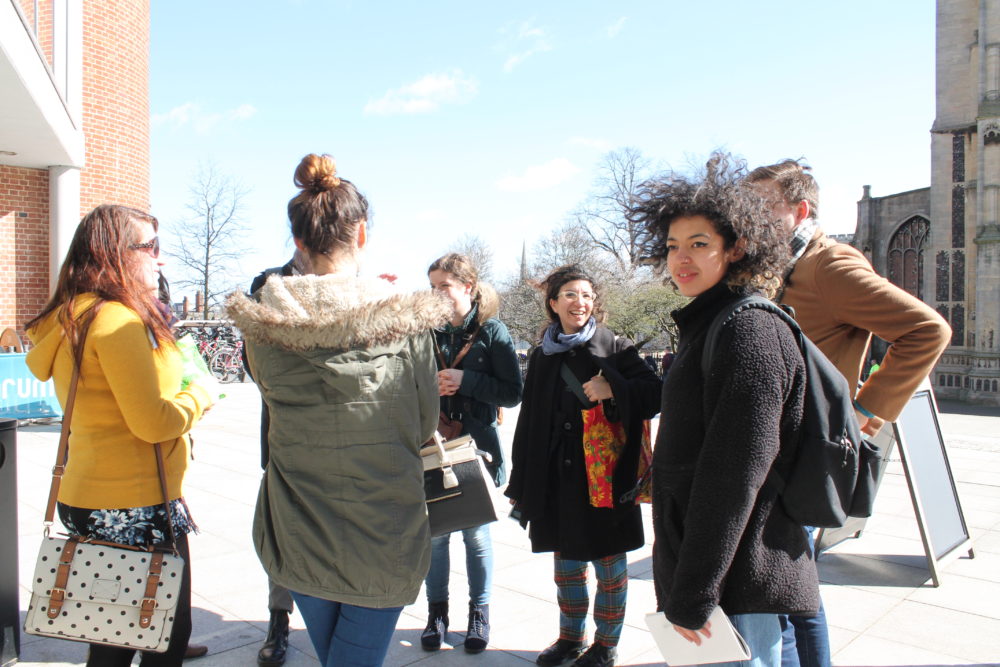
7/23
On the afternoon of day 2, we asked the service users to take us on a tour of online sites and resources – again, their territory – putting them in control. They showed us the good and bad of self-help sites and we discussed how the online environment could work better for them. Like the morning of day 1, everyone found the experience a little too intense.
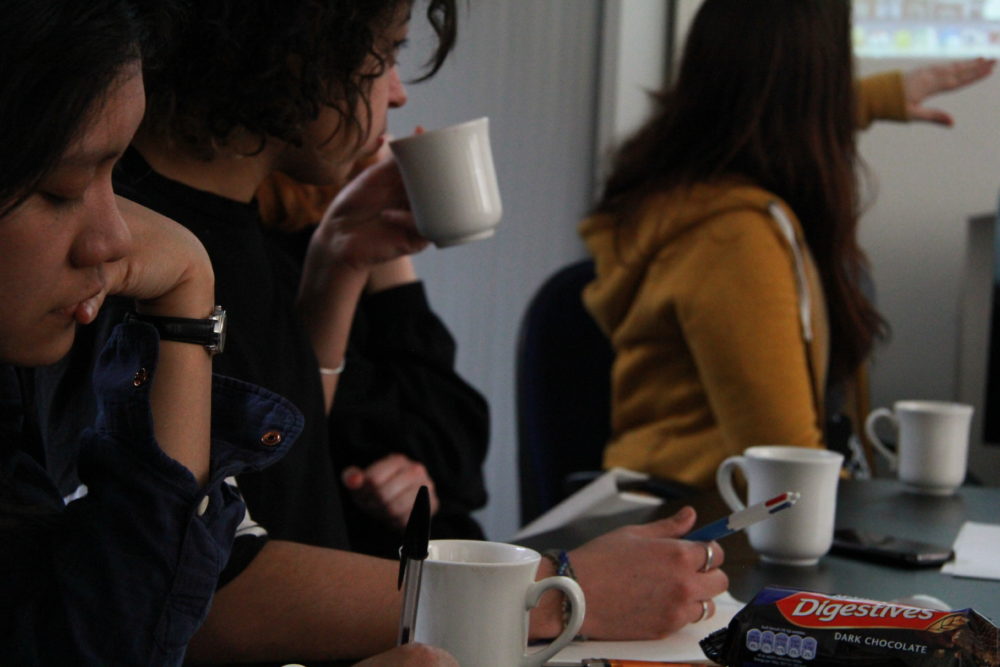
8/23: field trip days 3 & 4
For the last two days of the field trip, students helped the service users to make animations out the stories of their own personal experiences of accessing mental health services. A workshop experience for all that we witnessed to be very positive. From these first few workshops we learned that workshops predicated mainly on verbal forms of exchange soon became intense and difficult to handle emotionally for all participants. Whereas the non-verbal, making sessions proved to be much easier to handle: a lighter more positive experience for all.
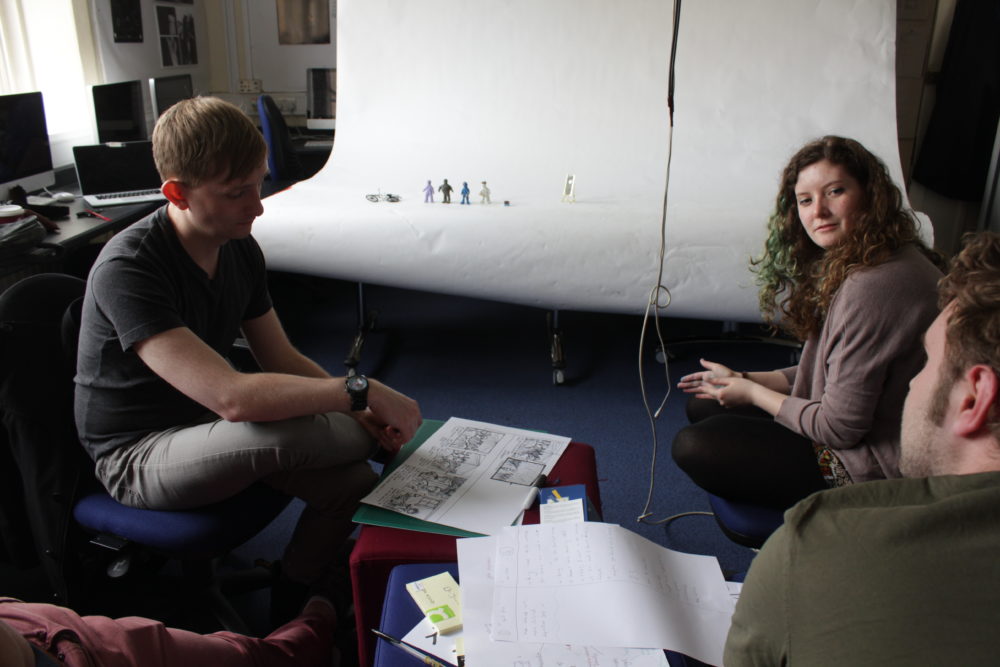
9/23
During those last two days our students also ran two workshops with NSFT frontline clinicians and youth mental health representatives from the local authority and voluntary organisations. We asked the service providers to dream about an ideal mental health service, describe how it might work and what it might look like.
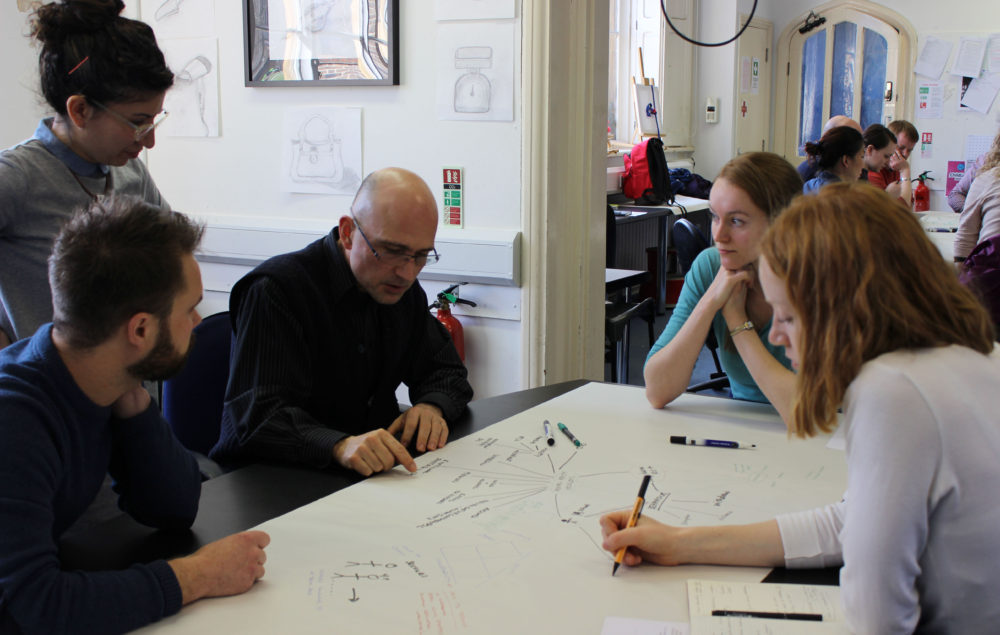
10/23
Our students accompanied their discussion, and at times led it, through continuous visual feedback – on large sheets of paper covering the tables, that everyone was invited to record their ideas on.
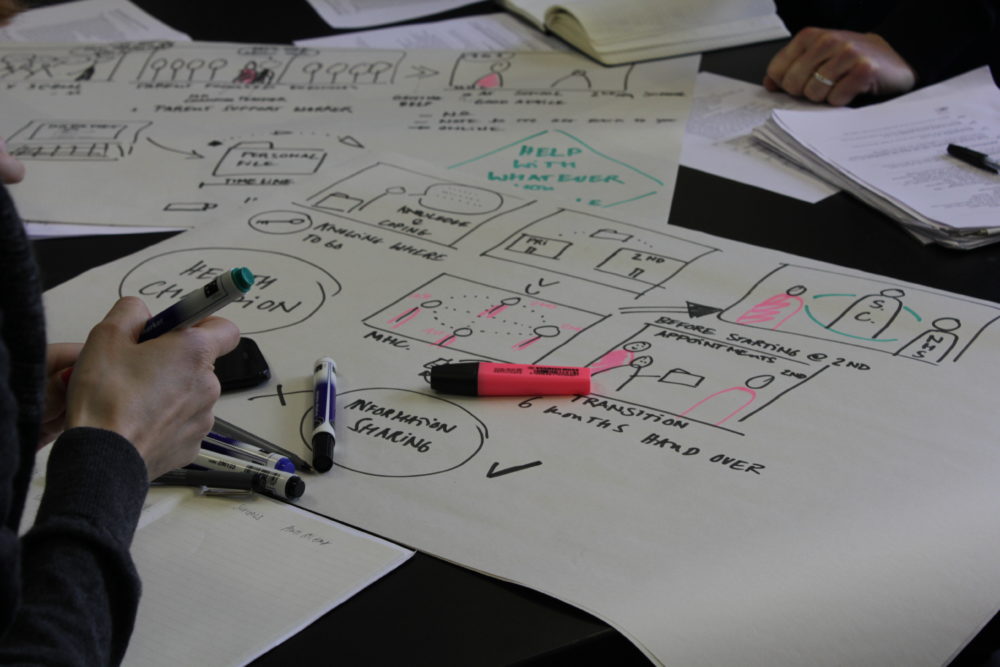
11/23
These workshops with service providers were like providing therapy to the therapists! They were not used to expressing their own personal views so freely. As outsiders with no knowledge of the system, we gave them licence to dream and they delighted in taking advantage of that. Here is what Tonia, (Therapeutic Service Operations Manager at MAP, the Mancroft Advice Project in Norwich) had to say (in the video beneath the picture below)…
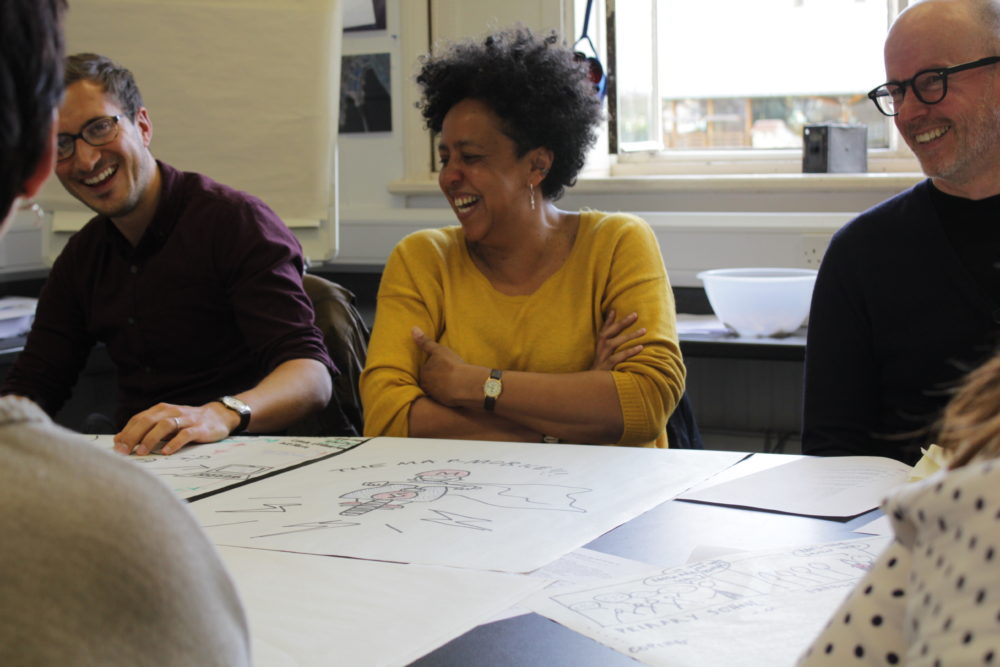
12/23
While the service provider workshops were going on downstairs, upstairs we had left our students and the service users to get on with their animations. There were signs that things were going well…
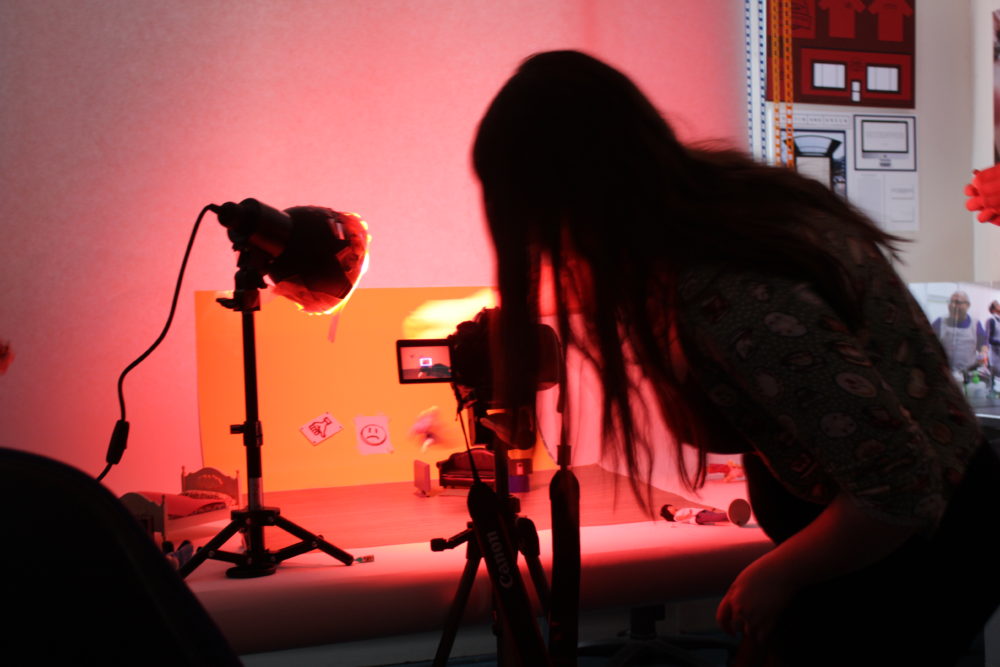
13/23
They had found the dressing up box. A measure of how relaxed the service users had become in this situation. Credit to our students.
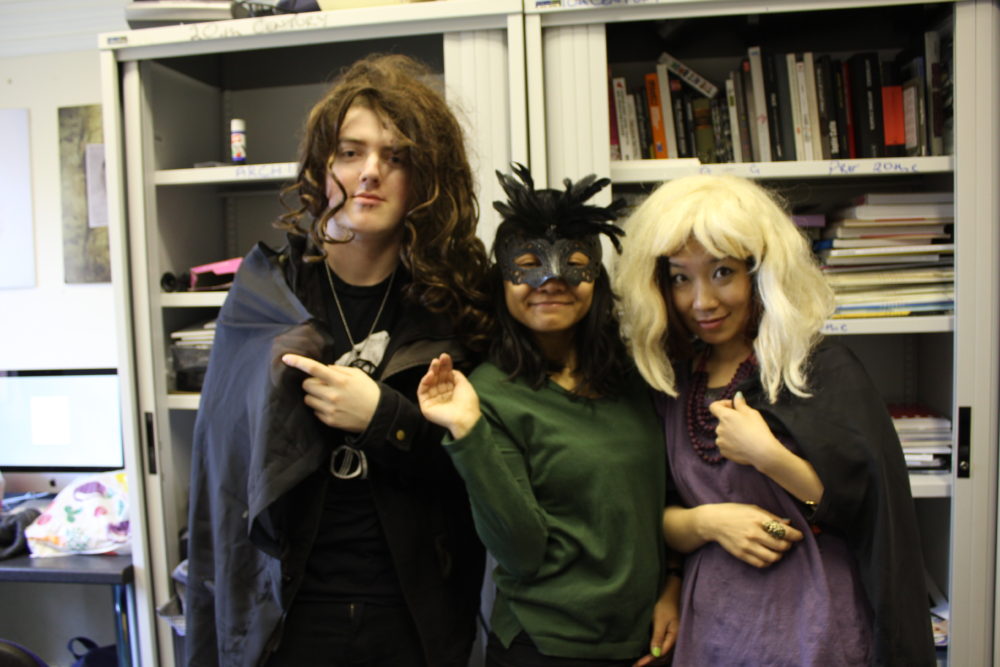
14/23
And they took themselves off to the cathedral cloisters opposite – one of the service users in 19th century nightgown and blonde wig.
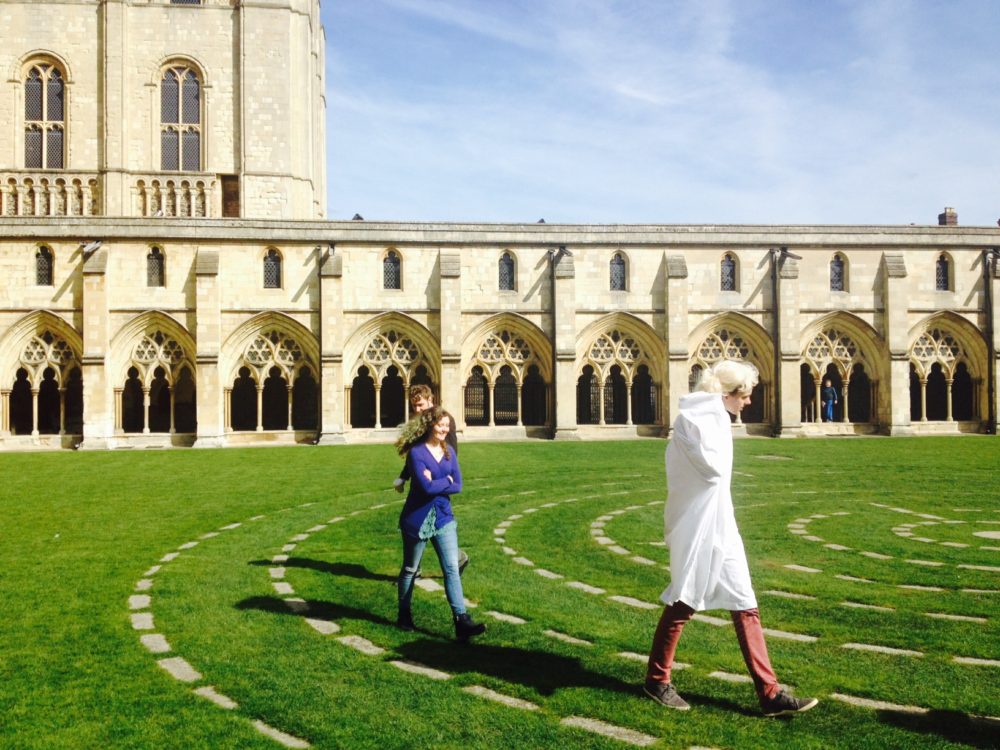
15/23: exhibition and video of the field trip
It was important that we end the week with a positive statement, a celebration of everyone’s efforts. And we did this by holding an impromptu exhibition in the crypt of a chapel in the cathedral close where the service users and students could present their animations and the canvases they had made earlier in the week. Here is a short video of the project up until this point (in the video beneath the picture below).
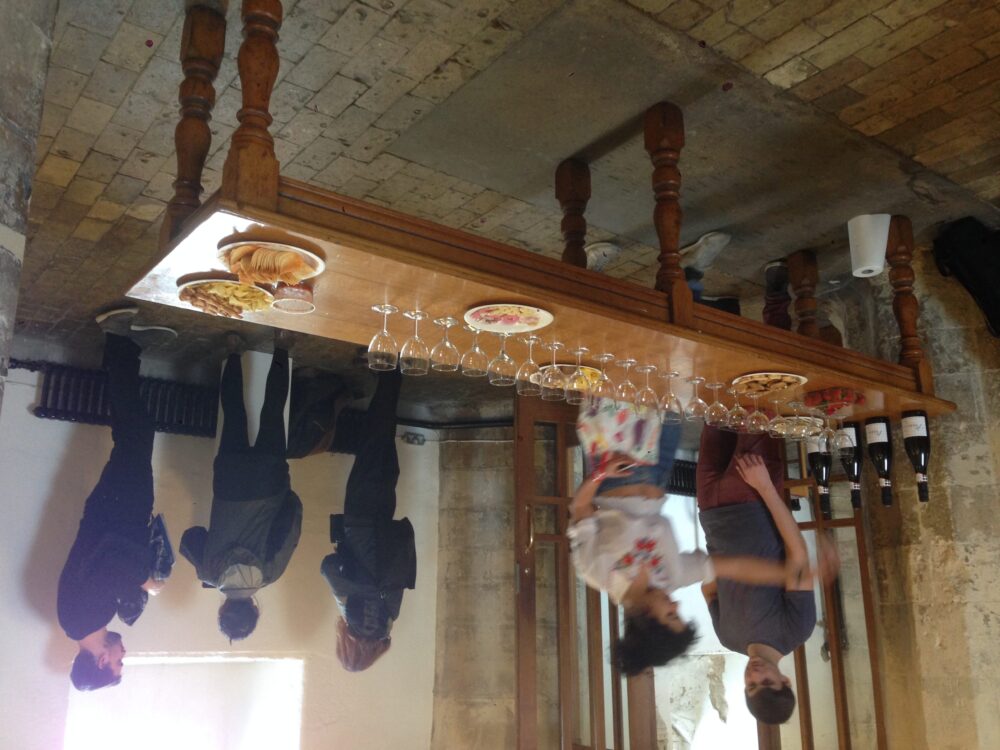
16/23: processing outputs from the field trip
With the field trip ended, we entered the next phase of the project: processing the field trip outputs. Logging, assembling, configuring data. Defining strategies, articulating proposals. And communicating all that visually.
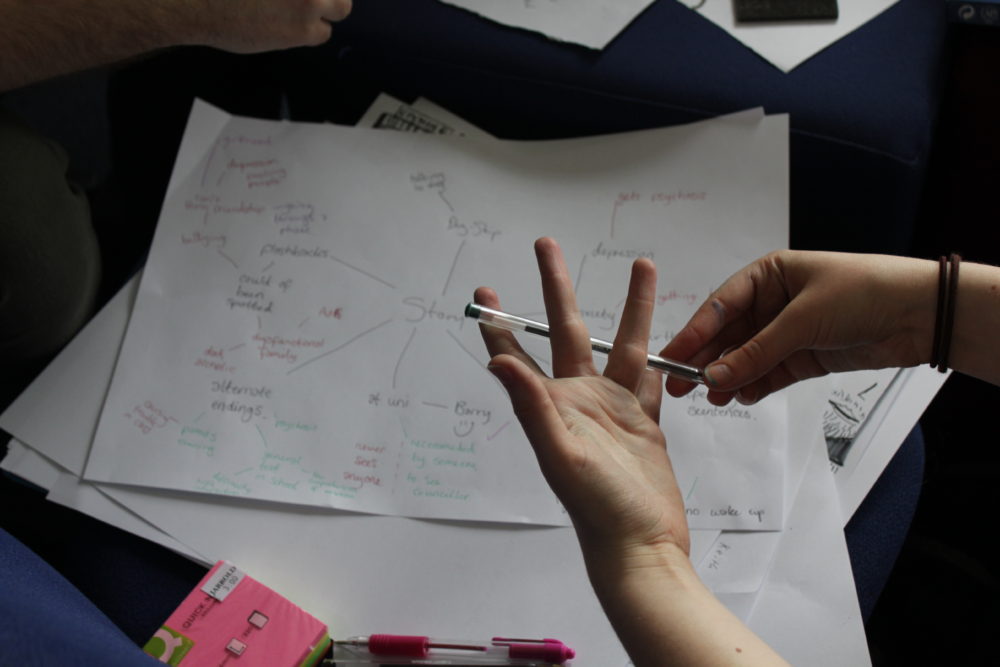
17/23
At this stage of processing the field trip outputs, we realised that one of the most important aspects of our method is photographic and video documentation: photographically recording events as they happen; conducting interviews immediately after events and filming them. Students took turns to be in ‘documenter’ mode while their fellow team members participated in workshops. We were fortunate to have documentary filmmaker Gareth Johnson present at key moments. Also, we had an illustrator in our team (Matt Ferguson) who operated in documentary mode most of the time and he gave us a different kind of record.
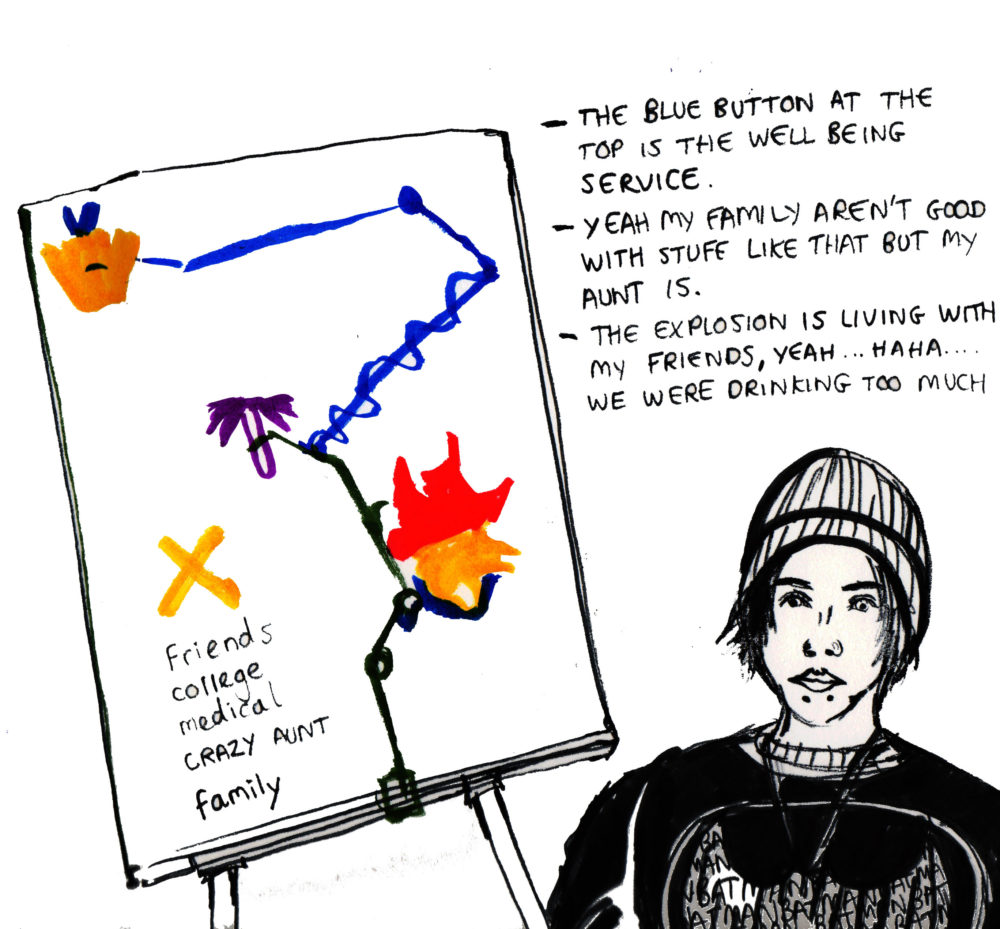
18/23
Following the field trip, the Early Lab student team held 8 development sessions (internally, once a week) through which we assembled first an interim and then final presentation, that we would show to NSFT in early June and late July 2015. Here we are decoding the large sheets that were the output from the workshops with the service providers.
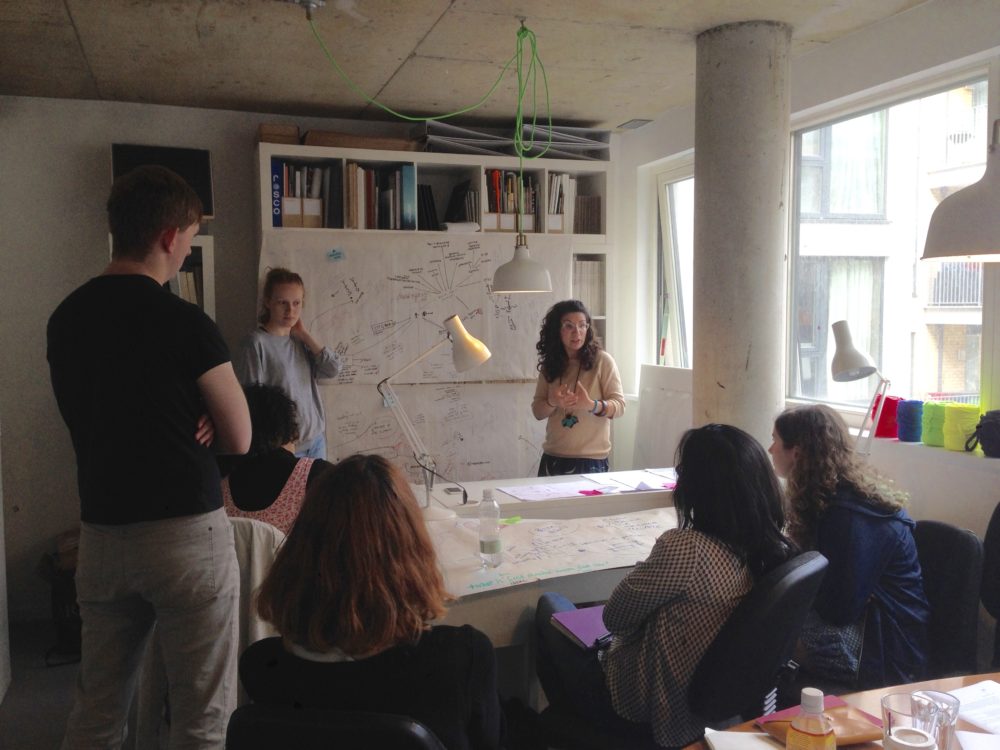
19/23
This was the part of the process that our students found most challenging. They performed so brilliantly on the field trip. But I don’t think they were prepared for how long the development phase would take. This was most probably the fault of Fabiane and I. In their preparation we placed all the focus on performance on the field trip and we hadn’t prepared them for the long slog of assembling all outputs into a proposal.
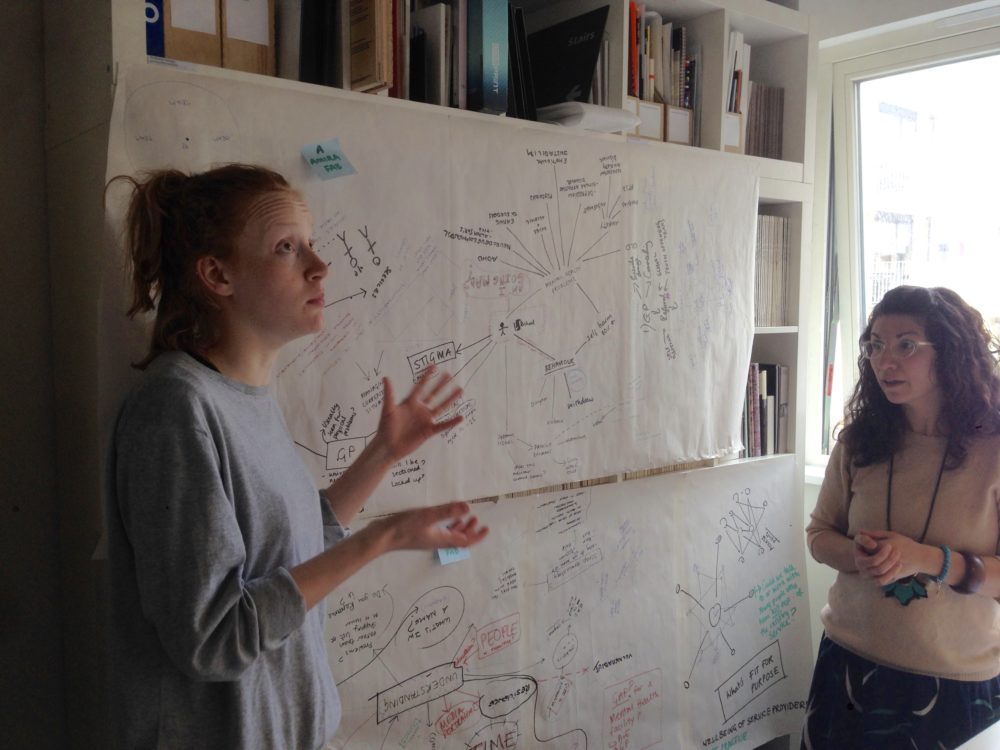
20/23: duration of project stages
In total, the Early Lab project with NSFT lasted roughly one whole academic year. Roughly 18 weeks of this required participation from the students (from the ‘student team preparation’ stage onwards for half the spring term plus all of the summer term. Probably the longest project any of them had worked on.
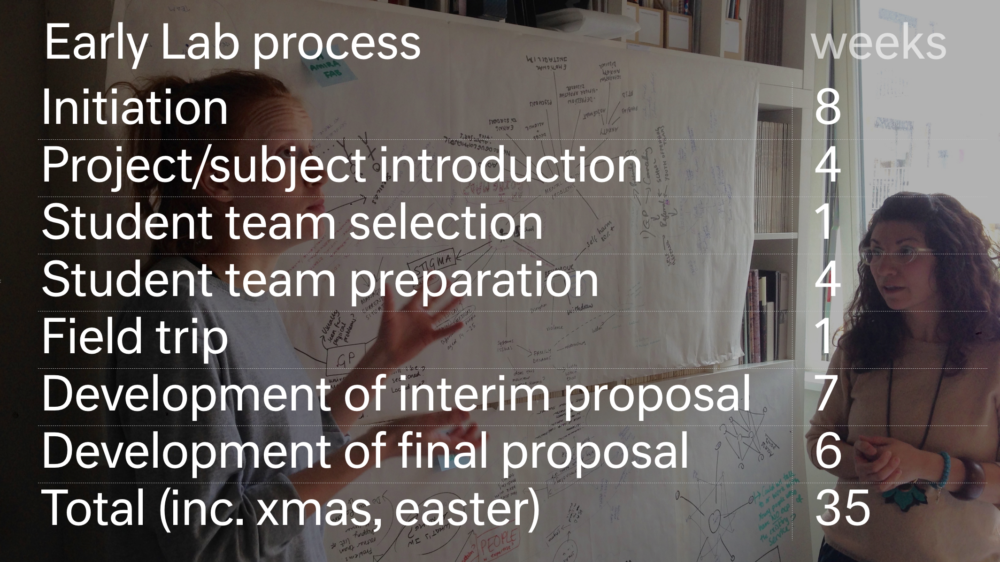
21/23: highlights of the final presentation
Here are four pages of highlights from our final Research Findings Document that we presented to NSFT in July 2015. (a 260 page Keynote document).
22/23: video of the final presentation
Here is a video of the project covering the period after the field trip up to and including the presentation of the research findings document to senior health commissioners in Norwich in July 2015.
23/23: what next?
Building on the ideas in this project, we are currently at the initiation stage of a new project. We are working on a plan to use design to help schools achieve the improved wellbeing of their students and staff. Working with NSFT, their research partners, and two Norfolk schools, we are looking to enable schools to create a more favourable environment for preventative mental health behaviours as a platform for better connected and resilient communities-in-place.
Other commitments allowing, we aim to put together a submission for project funding.
Early Lab ran a successful workshop related to these themes in November 2016 at a conference hosted by the National Institute for Health Research in Cambridge (pictured below). The aim was to look at ways that health professionals can work with education professionals more successfully. We are currently writing an evaluation report on this event that will be shared on this website soon.
